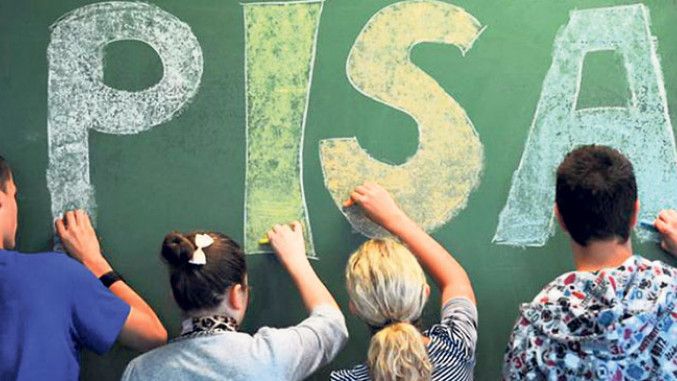The Serbian government stated today that on the PISA test conducted in 2022, our country has made progress compared to 2018 and is in 40th place in reading and science, and 42nd in mathematics.
- Serbia
Get to know Serbia
- Citizens
Culture and science
Health services
Pension and disability insurance
- Business
Employment
Economy
- Media
- Government
- Contact
Keep in touch
Keepin touch
Whether you have a question, comment, suggestion or any problem in the purview of the government, send us your message and we will try to respond as soon as possible. If your problem is not in our purview, we will forward your message to the relevant institution.
Serbian students make progress on PISA test
6,413 fifteen-year-old students from 183 schools participated from Serbia and solved tests on reading, mathematics, scientific literacy and creative thinking.
The results showed that the average achievement of students from Serbia on the mathematical literacy scale is 440 points (OECD: 472), on the reading literacy scale 440 (OECD: 476), and on the scientific literacy scale 447 points (OECD: 485).
The results in science and reading show a slight improvement compared to those obtained in the 2018 PISA survey (by eight and one points, while in mathematics there is a drop of eight points).
When interpreting the achievement results, it should be taken into account that compared to 2018, performance in OECD countries dropped by 10 points in reading and by almost 15 points in mathematics.
The results achieved in our country under the conditions of Covid-19 give rise to hope that the reforms that were started immediately after the end of the PISA 2018 cycle will continue in the direction of raising the quality of education.
Girls have better results in reading by almost 26 points, which represents almost one year of schooling. Boys have slightly better achievements in mathematics, and the difference amounts to 11 points. In half of the countries, boys on average had statistically significantly higher achievement than girls.
The results of PISA 2018, published in 2019, made it possible to reconsider the assumptions embedded in the existing education system.
-
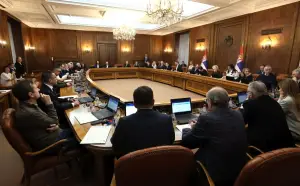 Belgrade, 12 February 2026
Belgrade, 12 February 2026Decree adopted establishing air quality monitoring programme within state network
-
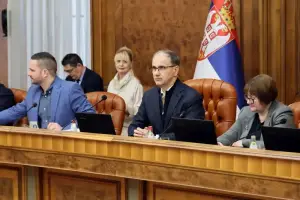 Belgrade, 6 February 2026
Belgrade, 6 February 2026Electricity bills to be reduced for citizens who were without power in January
-
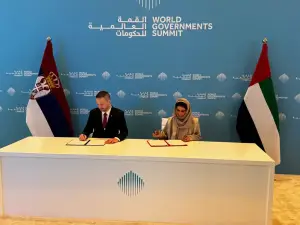 Belgrade/Dubai, 4 February 2026
Belgrade/Dubai, 4 February 2026Agreement on exchange of experiences, modernisation of work of governments of Serbia, UAE signed
-
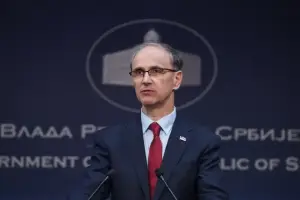 Belgrade, 30 January 2026
Belgrade, 30 January 2026Blockade of border crossings lifted following agreement with hauliers
-
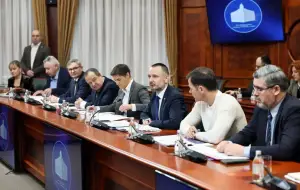 Belgrade, 30 January 2026
Belgrade, 30 January 2026Strengthening capacities, accelerating process of Serbia's accession to EU
-
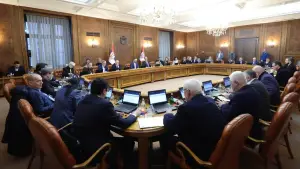 Belgrade, 29 January 2026
Belgrade, 29 January 2026Nomination of Serbia’s natural assets for inscription on World Heritage List
-
 Belgrade, 26 January 2026
Belgrade, 26 January 2026Members of Serbian water polo team awarded €20,000 each
-
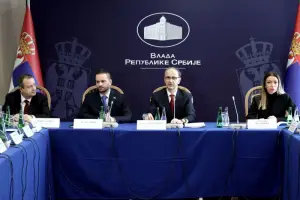 Tara, 24 January 2026
Tara, 24 January 2026Government adopts Bill amending Law on fees for use of public goods
-
 Belgrade, 22 January 2026
Belgrade, 22 January 2026Amount of special fee to incentivise privileged electricity producers remains unchanged
-
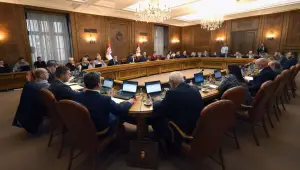 Belgrade, 16 January 2026
Belgrade, 16 January 2026Measures to mitigate consequences of severe winter weather, power grid failures

